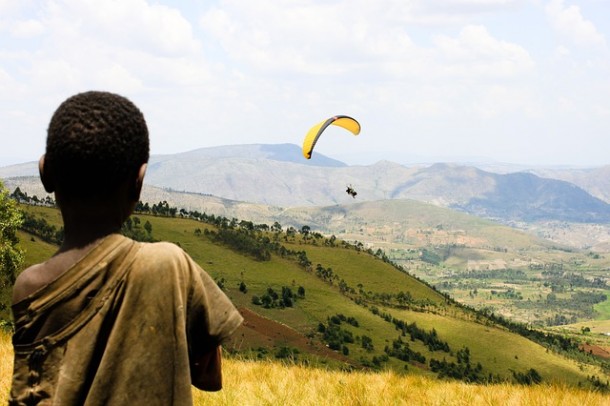The restless process of globalization is making easier than ever, day by day, to move all around the world. Let’s just compare our chances with our parents’ ones. Consequently, tourism has clearly got potential to grow everywhere. But is everyone making the most of this?
Among all the continents, Africa is the one with the most unexploited potential. Nevertheless, there’s to be more precise. Africa is a huge portion of land, and things get different moving around. Especially talking about tourism.
At the two poles comes the cream of the crop. Among the North-African nations, Marocco, Tunisia and Egypt are the ones which relies on the best developed tourism. Their proximity to Europe, made their lives easier; furthermore, in addition to the beautiful shores, they can boast antiquities which enhance a wider range of travelers.
At the other end, South Africa is by far the richest country overall. Over there, they can count on the relevant contribution of business tourism as well as the leisure one.
In between, things get more complicated. The political instability, not appealing by itself, usually comes with war and fights which work against the tide. The lack of facilities, such as roads and adequate airports, undermines the basic connections which tourism relies on: a flight from a central-African country to another, usually costs more than a London-New York trip. This harms not only long-term foreigners’ vacations, but also the rise of a culture that could see the African mid-upper classes more involved in intra-continental holidays. Moreover, the eventual spread of epidemic diseases, such as Ebola, is clearly frightening the “average” visitor.
The term average indicates that, even though outbreaks as Ebola are usually restrained, the lack of tactical information by institutions and operators lets the good portion of not-informed tourists feed their worries of biblical plagues.
This happened, for example, in Zimbabwe. In a recent speech, Zimbabwe’s Tourism Minister Walter Mzembi said:
“Perception in source markets unfortunately views Africa as one contiguous destination, a country, when in fact the continent. The ubiquitous nature of this disease is far reaching global ramifications and it impacts negatively on tourism and trade business”
He also highlighted that one of the biggest challenges to improve tourism throughout Africa was poaching, and, as an extension, the natural resources management:
“Nowhere is this more critical than Africa, where wildlife, particularly the elephants, rhinos, bonobos, vultures, painted dogs, lions, turtles and many other species are facing the greatest existential threats. The biggest mischief is the source markets. As countries, we are confronted by the mammoth task of responding to the complexities of syndicated trade in wildlife products and our inability to protect wildlife in nature reserves”.
Mr. Mzembi is also the acting chairman of the African Commission of the UNWTO (United Nations World Tourism Organizations), which met at the 21st General Assembly of the UNWTO taking place in Medellin, Colombia, this week. The theme of the General Assembly centered around how tourism can promote inclusive development and social transformation.
More than 900 delegates from 120 countries – including over 70 Ministers of Tourism and Secretaries of State – attended the General Assembly, which was opened by Colombian President Juan Manuel Santos Calderon in a speech delivered on Monday the 14th of September.
The meeting ended up yesterday, with the following outcomes:
- Destinations worldwide received some 538 million international tourists between January and June 2015, an increase of 21 million compared to the same period in 2014;
- Europe, Asia and the Pacific and the Middle East all recorded 5% growth in international arrivals and the Americas 4%;
- The limited data available for Africa indicates that international tourist numbers were down by 6%, with a decline of 10% in arrivals to North Africa and 4% in Sub-Saharan Africa;
- Alongside the impacts of the terrorist attacks, African destinations have been impacted by the aftermath of the Ebola outbreak in a few West African countries and the slower growth of regional economies depending on the export of oil and other commodities.
The latest comprehensive data regarding the tourism in Africa can be found in the The Travel & Tourism Competitiveness Report 2015.
Maxime Weigert, a regional economist in the West Africa Regional Department of the African Development Bank, in a piece titled “Tourism in West Africa: an economic, social and cultural opportunity” went through the data coming from different reports, depicting a clear frame of tourism in Africa:


